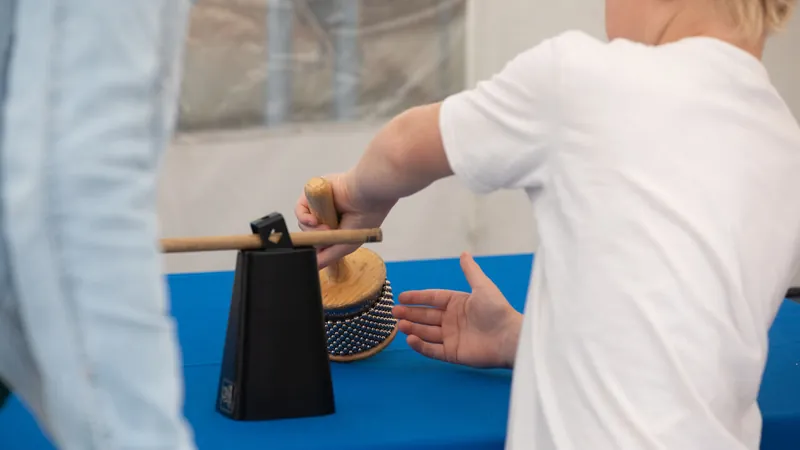
The Surprising Link Between Empathy and Musical Synchronization in Kids
2025-06-17
Author: Arjun
Unlocking the Secrets of Children's Music Interactions
A groundbreaking study from the University of Sheffield unveils the captivating connection between empathy and synchronization in musical activities among primary school-aged children. Published in the renowned journal Frontiers in Psychology, this research dives deep into how crucial social and motor skills intertwine, emphasizing the profound social foundations of musical synchronization.
Synchronization is a vital skill for creating music in groups. While musical training can enhance this ability, even those without a musical background often possess a basic level of synchronization. Previous research has suggested that factors like motor simulation and interpersonal empathy play significant roles in developing this skill.
Key Insights from the Study
Led by Dr. Persefoni Tzanaki and team, this innovative study examined pairs of children through two different experiments. They looked at both "trait empathy"—the inherent level of empathy in individuals—and "induced empathy"—empathy triggered specifically during the tests. Importantly, the researchers also analyzed how synchronized movements impacted the children’s empathy experiences.
Here are some of the fascinating discoveries:
1. Higher Empathy Equals Better Synchronization
The research confirmed that children with a higher level of trait empathy showcased improved synchronization in their movements. This indicates a direct correlation between a child's empathetic nature and their ability to harmonize musically with peers.
2. Synchronization Boosts Empathy
Notably, the study revealed that achieving synchronization not only enhanced musical collaboration but also deepened feelings of empathy toward their partners.
3. The Social Nature of Synchronization
These findings underscore the inherently social aspect of synchronization, particularly within musical contexts. As Dr. Tzanaki points out, "This is the first study to explore the relationship between empathy and synchrony in music from a bidirectional perspective, examining how empathy facilitates coordination in music and how synchronization fosters social bonding."
4. Gender Dynamics Play a Role
Interestingly, the study also revealed how the gender composition of pairs influenced synchronization outcomes, hinting at the effect of gender-related social dynamics on these interactions.
This research marks a significant milestone, opening doors for further exploration into how empathy influences musical collaboration among young people. The findings not only highlight the joy and connectivity in children’s collective musical engagements but also pave the way for deeper investigations into these reciprocal dynamics.




 Brasil (PT)
Brasil (PT)
 Canada (EN)
Canada (EN)
 Chile (ES)
Chile (ES)
 Česko (CS)
Česko (CS)
 대한민국 (KO)
대한민국 (KO)
 España (ES)
España (ES)
 France (FR)
France (FR)
 Hong Kong (EN)
Hong Kong (EN)
 Italia (IT)
Italia (IT)
 日本 (JA)
日本 (JA)
 Magyarország (HU)
Magyarország (HU)
 Norge (NO)
Norge (NO)
 Polska (PL)
Polska (PL)
 Schweiz (DE)
Schweiz (DE)
 Singapore (EN)
Singapore (EN)
 Sverige (SV)
Sverige (SV)
 Suomi (FI)
Suomi (FI)
 Türkiye (TR)
Türkiye (TR)
 الإمارات العربية المتحدة (AR)
الإمارات العربية المتحدة (AR)